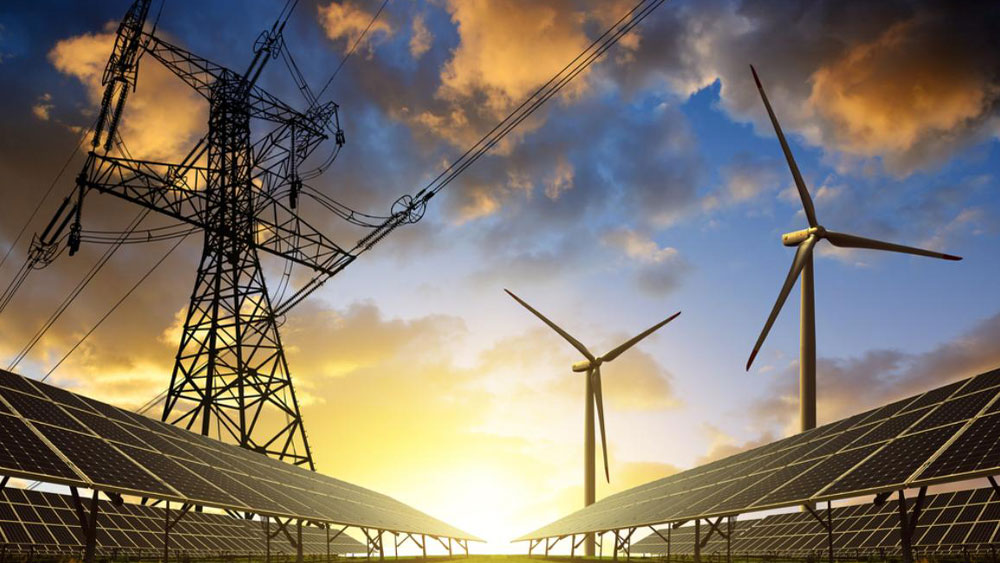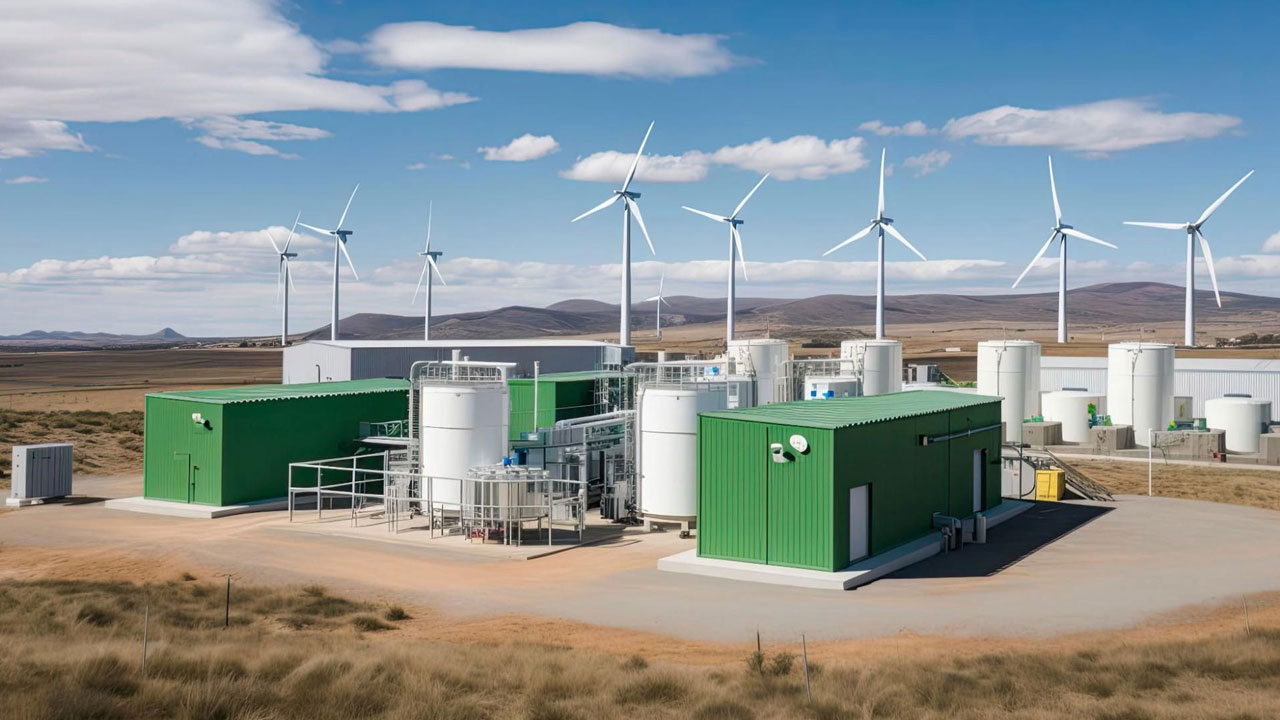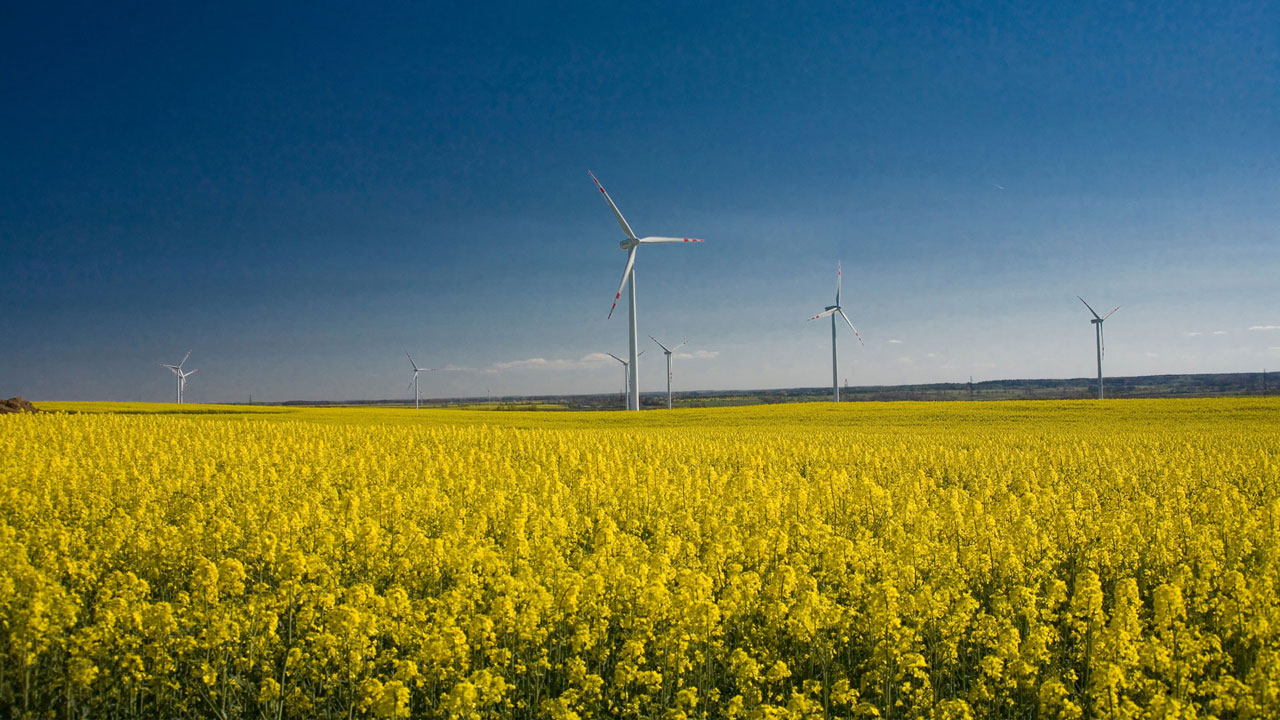
Tetra Tech’s Europe-based energy team sees several opportunities for aspiring countries to achieve their clean energy goals, strengthen energy security, and advance a just energy transition for all.
Countries in Eastern Europe, the Western Balkans, Central Asia, and North Africa are striving to meet European Union energy and market standards. Three common challenges include:
- Decarbonizing energy systems
- Strengthening energy security
- Forging an inclusive energy sector that delivers reliable services at affordable prices
These energy pillars provide the framework for the work and investments of organizations, such as the European Bank for Reconstruction and Development (EBRD). Download the white paper to learn more about Tetra Tech’s experience addressing these challenges.
Tetra Tech implements projects that strengthen energy security and bolster economic growth.
30+
years of coordination with EBRD
30+
EBRD countries of operation


Decarbonizing energy systems
Scaling up renewable energy and clean technologies through auctions
Investment in clean energy can only be mobilized through reliable enabling environments. Investors and developers need security and transparency to make confident decisions with their capital. Governments need to keep consumer costs affordable and keep power projects on schedule. Competitive procurements—or renewable energy auctions—can reduce clean energy costs, spur private investment, and curb corruption. Auctions are increasingly used by governments, donors, and companies worldwide to meet these goals.
Energy Community countries are required to introduce renewable energy auctions as part of their European Union market integration. Auction planning and grid planning go together, and project agreements should be as final as possible when auctions take place to create a level playing field for all participants. Successful auctions will be tailored to local markets, power system conditions, and policy objectives.
Preparing the energy system for a decarbonized and decentralized future
The clean energy transition poses both challenges and opportunities for energy systems planning and the development of market-based solutions. A challenge for countries is that economical and reliable delivery of energy requires robust network and storage infrastructure. Benefits of new and decentralized energy technologies include enabling energy consumers to control their consumption, participate in energy markets, generate energy on-site, and contribute to enhancing energy system flexibility and resilience. Planning for power system adequacy and renewable energy source integration benefits from sophisticated probabilistic modeling with appropriate, granular historical data series.
Whereas the system-level approach advises on network development and operations, appropriate regulatory models that can trigger innovation and attract private sector participation are essential. Smart and inclusive market frameworks offer appealing alternatives to costly, time-consuming infrastructure development. These include self-consumption, behind-the-meter storage, smart electric vehicle charging, and local flexibility markets. Heat pumps, solar thermal systems, and biomass technologies are prominent solutions to consider for the decarbonization of district heating and cooling, paired with demand-side measures and cost-reflective heat metering and billing systems.
Promoting biofuels and clean hydrogen
The necessity of clean alternative fuels such as hydrogen and its derivatives, synthetic fuels, and biofuels is becoming more pronounced as the call to decarbonize hard-to-abate industries and economic sectors escalates. Long-term planning, including the development of strategies and roadmaps with input from all stakeholders, is crucial to properly align efforts and minimize redundancy. Comprehensive mechanisms involving public policy, funding, and regulation are necessary not only for projects related to production but also for end users, generating enough interdependence between supply and demand for these markets to develop effectively.
Promoting the development of clean fuel hubs with stakeholders aligned across the entire value chain is essential. These hubs concentrate production and storage infrastructure, enabling economies of scale that reduce production costs and make projects more viable. Furthermore, with the involvement of a diverse set of off-takers, hubs can generate varied revenue streams, reducing operational risks.

Accelerating fossil fuel phase-out through improved energy planning
European nations are at a critical juncture in their energy transition, striving to meet clean energy targets while ensuring economic stability and security of supply. A well-planned transition must prioritize resilience, affordability, and energy independence, reducing reliance on volatile global markets while maintaining a diverse energy mix.
Strategic energy planning plays a key role in securing reliable, cost-effective energy supplies while advancing clean energy solutions. This includes diversifying energy sources—integrating renewables alongside efficient gas and biogas technologies—while investing in grid modernization and storage solutions to ensure system reliability.
A successful energy transition should be built on credible implementation strategies, developed in collaboration with industry stakeholders, financial institutions, and local communities.

Strengthening energy security
Securing energy supply
The energy crisis triggered by Russia’s aggression has led decision-makers in the European Union to adapt policies and strategies. Diversification of energy carriers and energy supply has rapidly changed energy consumption patterns and led to an unprecedented reduction in natural gas utilization. Adaptation entails countries accelerating renewable energy source generation and developing network and storage infrastructure. They must also advance market integration.
Advancing energy efficiency
Energy efficiency is considered the “first fuel” leading to cost-effective carbon dioxide mitigation. Despite global progress in reducing energy intensity, much more effort is needed to achieve the 2-degree Celsius target, more than doubling current investments. Well-established best-practice policies on energy efficiency can help mitigate regulatory, institutional, and economic challenges. Among them are targeted economic incentives to de-risk investments and attract private sector finance, as well as streamlined and digitized procedures to facilitate investment, such as one-stop shops and dedicated technical assistance facilities. Pioneering business models, new financing mechanisms that incorporate energy performance contracting, and digital innovation encompassing data analytics and aggregation are expected to help exploit the substantial energy efficiency potential in all sectors of the economy.
Forging an inclusive, reliable, and affordable energy sector
Safeguarding a just energy transition
A coordinated coal phase-out supports a just energy transition. It requires comprehensive, ambitious, yet realistic plans that serve as a roadmap to restructure the productive model of the transitioning areas. These plans must also capitalize on the areas’ diverse comparative advantages and all available sources of funding. Successful initiatives mobilize substantial dedicated funding to leverage investments that alleviate the socioeconomic costs of diversifying local economies. Overall, this effort should:
- Safeguard and increase employment while creating new jobs through investment and reskilling of the workforce with a distributive lens
- Offset the socioeconomic effects of coal mine closure by maintaining and strengthening community relations
- Use available funding and direct investments through appropriate incentives in areas undergoing clean energy transition
- Provide gender-smart and disability-inclusive investment technical assistance to private investors
Learn more about Tetra Tech’s experience accelerating decarbonization and advancing resilient, inclusive energy sectors.
About the authors
Nikolaos Tourlis
Nikolaos Tourlis is a managing director with 20 years of experience in regulatory policy, electricity market design, and power systems.
He has provided technical assistance to governments and energy market institutions around the world, advising on the definition and implementation of energy policies, strategies, and action plans. He has developed technical rules, procedures, and pricing methodologies, gaining in-depth expertise in energy governance. Nikolaos has managed expert teams to deliver technical assistance involving both analytical and capacity-building activities to ministries responsible for energy, national regulatory authorities, network operators, and other market actors. He holds a Master of Business Administration from Hellenic Open University and a Master of Science in electrical power engineering from the University of Strathclyde.
Fabian Wigand
Fabian Wigand is a senior director who advises clients on regulatory and financing frameworks for renewable energy.
He is an expert on energy procurement and power sector reform, having consulted for international development and finance institutions as well as governments on energy reforms and auctions in more than 20 countries. He has advised large energy companies, banks, and investors on market entry, financing, risk, and bidding strategies for renewable energy and green hydrogen. Fabian has experience in international energy negotiations and has advised the G7 and G20 presidencies, the European Commission, and the German energy partnerships on energy and climate policy. He holds a Master of Science in international political economy from the London School of Economics.
Savvas Louizidis
Savvas Louizidis is a senior director with over 25 years of international experience in sustainable energy consulting.
He has extensive knowledge of best practices in decarbonization and climate change mitigation, including energy efficiency, energy management, and renewable energy in all sectors of the economy. He has provided technical assistance and advice to international financial institutions and the private sector on economic analysis, due diligence, feasibility studies, policy advice, and financial instruments for energy efficiency. He has developed methodologies, tools, and guidelines for clean energy projects and helped administrations in many countries improve their institutional frameworks on sustainable energy and promote decarbonization. Savvas has experience implementing technical assistance projects in transition economies, including the Eastern Neighborhood Partnership Initiative region and Central Asia. He holds a Master of Science in combustion science and pollution control from the University of Sheffield.
Justin Goonesinghe
Justin Goonesinghe is a director who leads Tetra Tech’s clean gases and hydrogen initiatives worldwide.
His team’s work includes research, analysis, and advice to governments, regulators, and commercial companies. He works with commercial and private sector clients to deliver advice and projects related to clean gas and hydrogen, including market assessments and hydrogen roadmaps. He has significant experience in global market regulation, policy, project management, and commercial strategy involving natural gas, biogases, hydrogen, and liquefied natural gas. He is a regular speaker at major gas and hydrogen events. With broad global experience in the sector, Justin brings a deep and well-established network of United Kingdom, European, and global industry connections gathered through extensive external engagement and participation in international organizations. He holds a Bachelor of Science in geography and is expected to obtain a Master of Science in global energy and climate policy from the University of London in 2025.
Ana Amazo
Ana Amazo is a senior manager with 10 years of experience specializing in policy and regulatory frameworks for renewable energy.
She has led a wide range of assignments for governments, international organizations, and investors to promote, finance, and integrate clean energy systems. She has designed and implemented renewable energy auctions in more than 10 countries in Asia, Europe, and Africa. She has advised authorities and industry stakeholders on incentives for green hydrogen in Namibia, Bhutan, and Colombia. Ana has assessed policy and commercial viability of hydrogen pipelines for system operators and provided market and regulatory assessments of renewable energy in Europe. She holds a Master of Public Policy from the Hertie School of Governance.